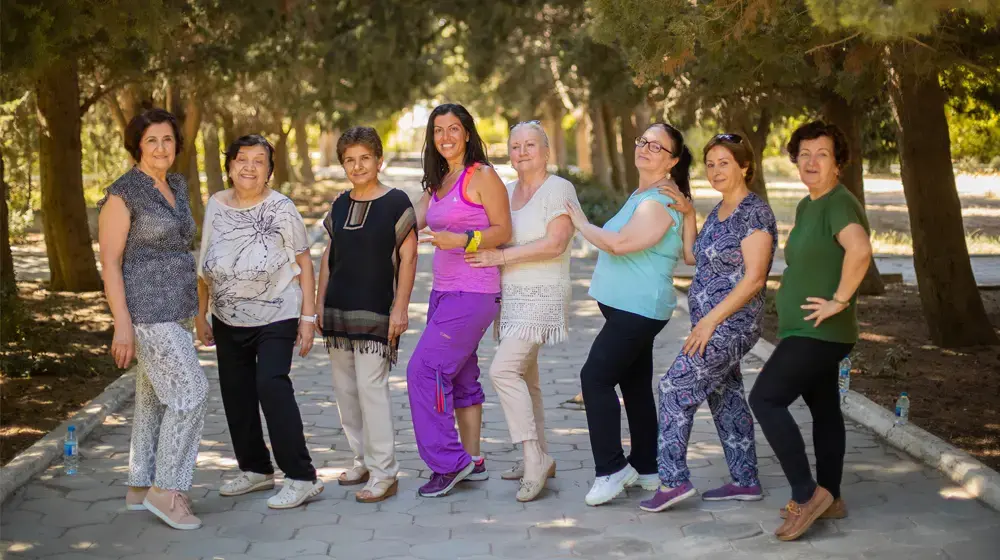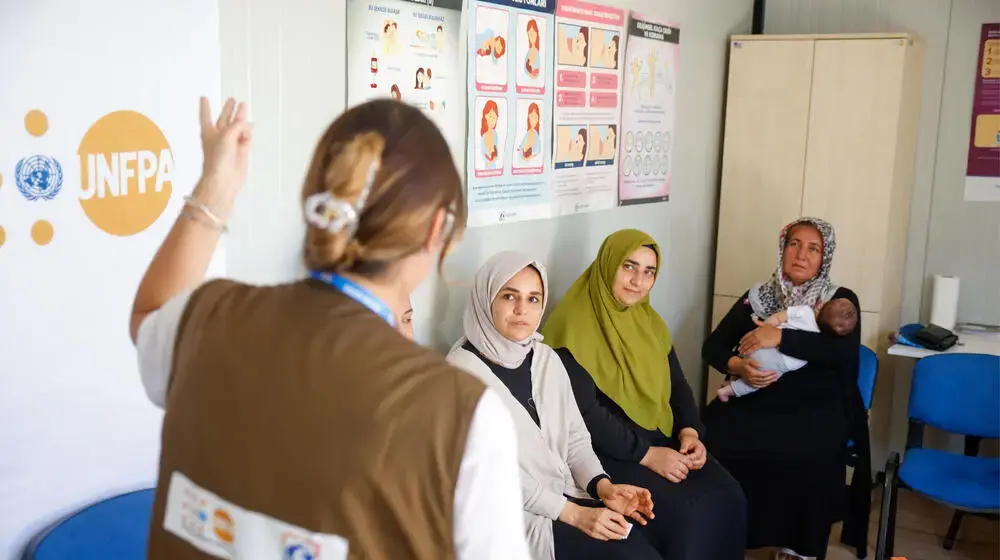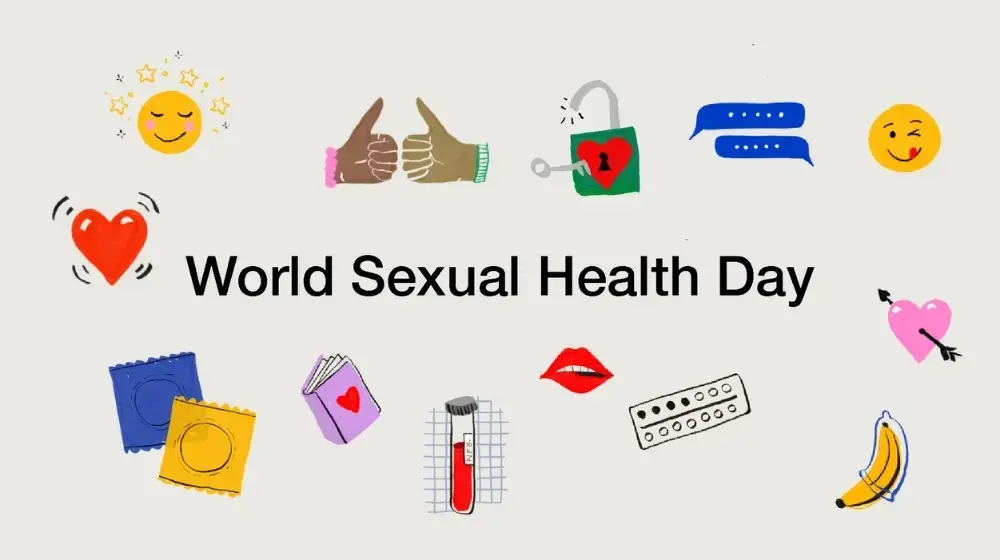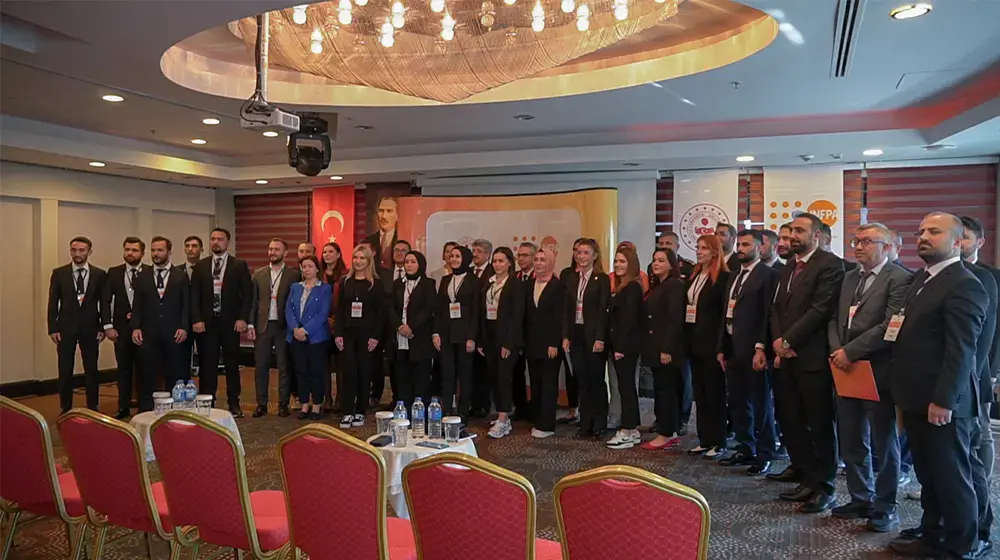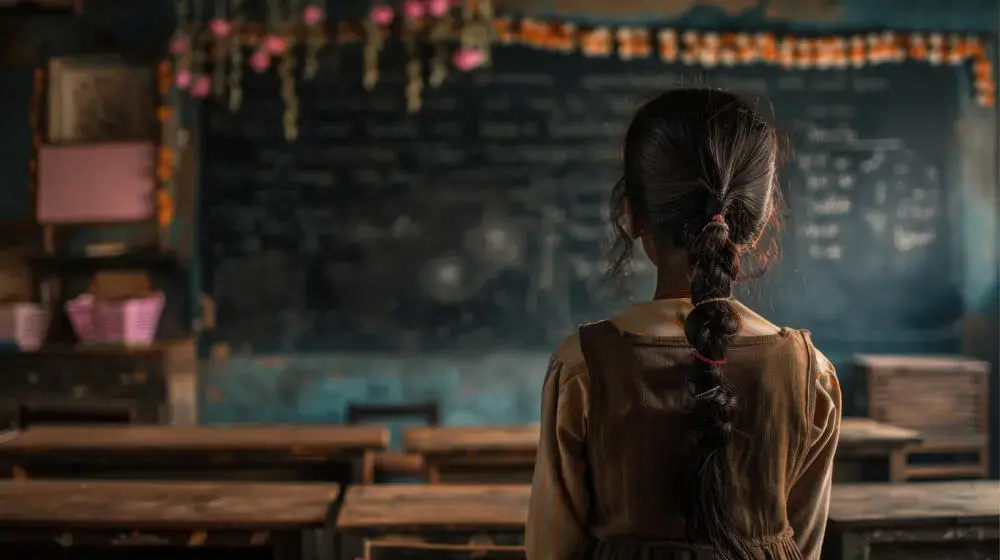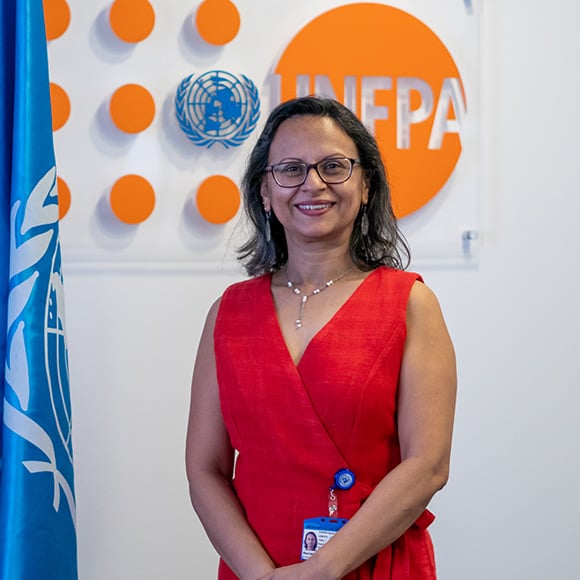Menopause is an important milestone in every woman's life, affecting their physical, emotional and mental health significantly. By 2025, 1.1 billion women worldwide will be in menopause which affects more than 1 in 5 members of the global workforce.
Sexual and reproductive health
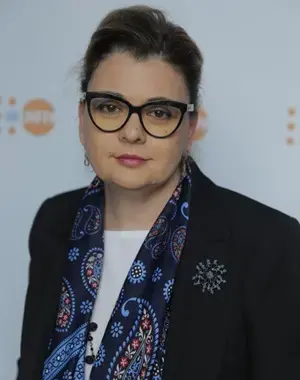
Country Representative
Dr. Nigina Abaszada
UNFPA Resident Representative in the Republic of Uzbekistan and Country Director for Tajikistan abaszade@unfpa.org
Latest from the Representative
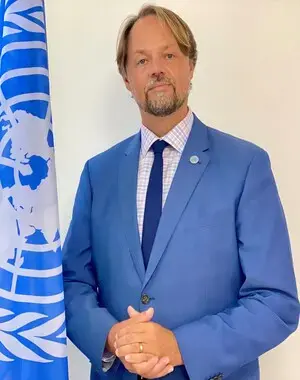
Country Representative
Mark Bryan Schreiner
Mark Bryan Schreiner is UNFPA’s Country Representative, United Republic of Tanzania since 2022. Mark previously served as the UNFPA Representative in Rwanda from 2017- 2021.
Latest from the Representative
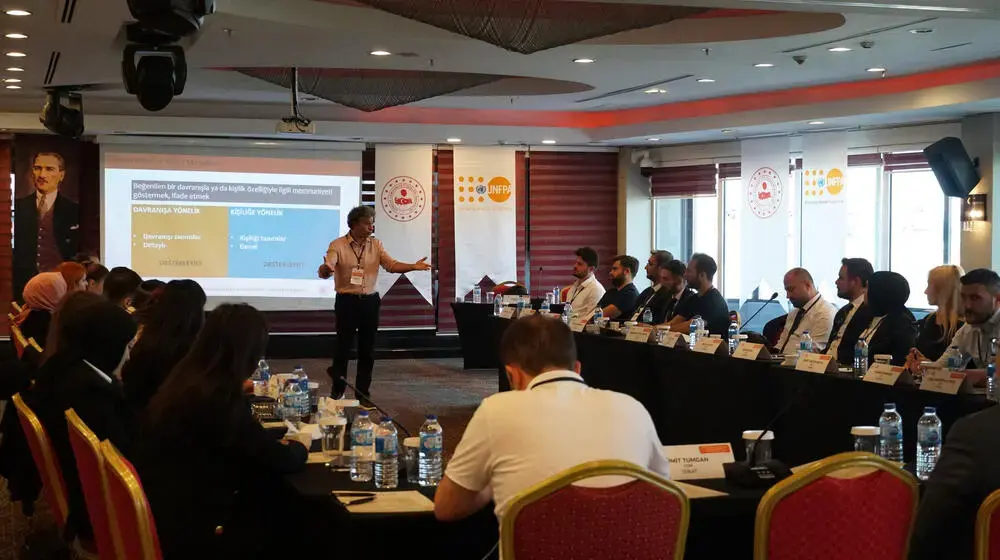
Video
17 October 2024
Combating Violence Against Women More Effectively with the Police and Gendarmerie
Read storyNews
Menopause is a global workforce issue in a world where people are living longer and working longer!
18 October 2024
Related Content

Video
17 October 2024
Combating Violence Against Women More Effectively with the Police and Gendarmerie
Read storyNews
05 October 2024
Combating child marriages more effectively, shoulder to shoulder with teachers
Read storyNews
2024 World Contraception Day
26 September 2024
Access to contraception is a human right.
Related Content

Video
17 October 2024
Combating Violence Against Women More Effectively with the Police and Gendarmerie
Read storyNews
World Sexual Health Day 2024
04 September 2024
Sexual health is not just about the absence of disease.
It is an integral part of human health, a matter of holistic well-being – physical, mental, emotional – that enables people to reach their full potential. It’s about building relationships upon mutual trust and respect, and creating a safe space from which we can express ourselves and connect with others. It is inseparable from the full enjoyment of human rights, including every person’s right to bodily autonomy.
Related Content

Video
17 October 2024
Combating Violence Against Women More Effectively with the Police and Gendarmerie
Read storyAbout us
UNFPA is the lead UN agency for delivering a world where every pregnancy is wanted, every childbirth is safe and every young person's potential is fulfilled. UNFPA expands the possibilities for women and young people to lead healthy and productive lives.
What we do
UNFPA works in more than 150 countries and territories that are home to the vast majority of the world’s people. Its mission: to ensure that every pregnancy is wanted, every childbirth is safe and every young person’s potential is fulfilled.
Read more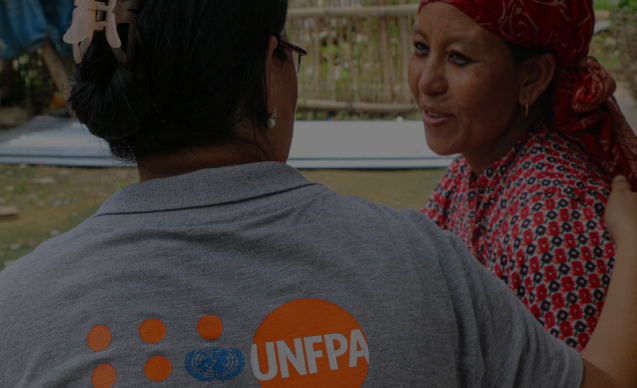
Read more
News
Recovering together with the youth in Hatay
28 August 2024
One and a half years have passed since the February 6, 2023 earthquakes. The devastating impacts and needs that emerged after the earthquake, which directly affected approximately 9.1 million people in 11 provinces, continue. After the earthquakes, 3.6 million people lost their homes, and currently, around 670 thousand people continue to live in temporary settlements. Approximately 1.1 million young people are in the region, who are among the most vulnerable groups.
Recovering together with the youth in Hatay
Related Content

Video
17 October 2024
Combating Violence Against Women More Effectively with the Police and Gendarmerie
Read storyVideo
Empowering girls in the earthquake region
Melike, Sudenaz, Irmak and Aliye… They are just a few of the tens of thousands of girls living in container cities in the region 1.5 years after the earthquakes… Despite the difficulties they experience, they continue to recover and grow stronger with support…
With the financial support of U.S. Department of State: Bureau of Population, Refugees, and Migration and in partnership with AÇEV - Anne Çocuk Eğitim Vakfı, we continue to support girls in the areas of protection and health in the earthquake region. Let's hear their stories from them
Related Content

Video
17 October 2024
Combating Violence Against Women More Effectively with the Police and Gendarmerie
Read storyNews
The Key Refugee Groups (KRG) Project continues service provision through 5 Service Units for the furthest behind
14 August 2024
ANKARA, TÜRKİYE - The service provision on sexual and repr
Related Content

Video
17 October 2024
Combating Violence Against Women More Effectively with the Police and Gendarmerie
Read storyUNFPA in Mongolia
UNFPA Mongolia began supporting the Government of Mongolia in the late 1970s providing equipment and training to the Central Statistics Office to undertake the Population and Housing Censuses of 1979 and 1989. Support for maternal and child health began in the early 1990s and included capacity building of medical personnel and the provision of medical equipment and supplies including modern contraceptives.
What we do
UNFPA works in more than 150 countries and territories that are home to the vast majority of the world’s people. Its mission: to ensure that every pregnancy is wanted, every childbirth is safe and every young person’s potential is fulfilled.
Read more
Read more

